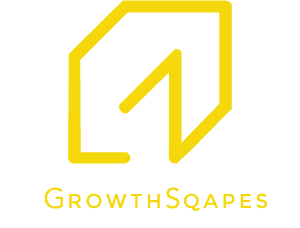Ross was excited when a new group of MBA graduates joined as interns. Ross, now on the right side of 40, has been with ABC Corporation for the last 15 years. He has always worked his way up through hard work and commitment to goals. He has always taken people along, loved mentoring young professionals, helping them to transition from college to becoming thorough professionals in about 6 months. Ross could boast of having brought up many generations of new hires through training, mentoring, and handholding. Ross also felt lucky to have worked under tough but fair bosses who had pushed him to reach his highest potential, and Ross in turn has done the same for his teams. Always.
After a period of working as an individual contributor during COVID, Ross has finally been assigned a new team. He was super-excited and warmly welcomed the new hires, briefing them on how “things run here.”
But soon, something started to feel off.
These interns seemed not to respect office timings, seemed to intentionally violate deadlines while prioritizing personal time, and felt entitled to leaves – often the reason for the leaves seemed unclear beyond “I am not feeling well”.
Ross quickly realised that he had to spend more time explaining the work – and for three months he did that. Until increasingly it felt easier to just do it all by himself. The harder Ross tried to set boundaries, the more these noobs seemed to slip away.
One day, he assigned a critical project to Mel, outlining tasks, deadlines, and quality expectations. She quickly told Ross that she understood, though she showed little enthusiasm. Ross told her to check in if she faced any issues.
As the deadline approached, Ross discovered—too late—that the work was barely half done. Despite his check-ins, when Mel had quietly insisted she was fine, we were barely where we needed to be. The client meeting was in an hour – Ross was barely able to control his inner hysteria. Mel broke down, simply told him that she will come back after a break in an hour, because she was not feeling well.
Sounds familiar? Welcome to the modern cold corporate warzone between millennial bosses and Gen Z hires.
As the Millennials are reaching the leadership roles they have hustled for, their professional aspirations are being disrupted by a bunch of “casual” and “entitled” youngsters who seem outrageously audacious in their asking for personal space, time boundaries and feeling emotionally well. These youngsters do not seem to have loyalty or commitment, nor the resilience to withstand the tough love that the millennials grew up with.
So what does one need to do if two groups on either end of 180 degrees in their values are to be supported to work together to be able to co-create and achieve shared growth.
Adoption of new culture strategies by organizations
Here are some strategic recommendations for organizations that can be considered to resolve this conundrum.
- Start developing them much before hiring – organizations must integrate well with educational institutions, and develop outside-the-textbook leadership journeys for students who are to become professionals. Design longer internship programs that start sooner than later in their curriculum. Start in middle school if possible!
- Hire based on soft skills and actual impactful work done – Instead of traditional interview methods, ask candidates to present their work to test their sensitivity to some of the most important values that your company needs. Topics that excite them beyond the textbook. Assess autonomy, collaboration style, and adaptability during hiring.
- Embed work ethic & professionalism training for Gen Z – Some important new training avenues can be on managing ambiguity, meeting professional expectations, and self-directed problem-solving, taking feedback, understanding constructive communication methods.
- Invest in continued leadership journeys for Millennials – Offer workshops on coaching-based leadership rather than old-school authoritative models. Equip managers with skills in empathy-driven management, trust-based, psychological safety, and real-time feedback methods.
Growthqapes’ tools such as the Self Emotional Quotient Assessment Profilers (SEQAP) help leaders to unravel their emotional own styles that enable them to develop as better people leaders.
- Develop a training pool comprising of Gen Zs – Imagine Gen Zs teaching us technology, communication, mental health and safety! It would be the quickest way to Gen Z inclusion as a part of your organization’s growth story.
- Dispel myths, discourage silence, dissuade from stereotyping – Workplaces and social media are abuzz with the two groups stereotyping each other. It is exciting for everyone to see the impact of their work in a meaningful way. The goal is to get everyone to perform at their highest potential, not for them to simply comply. Remove unnecessary compliance complications. Create a positive performance language that dispels myths and prevents stereotyping.
- Addressing feelings is important to close the ‘distance’
In this case of Ross & Mel, it is so easy for them to turn their backs on each other. What Mel perhaps was not able to mention to Ross was how terrified she was of the outcome of failing the deadline. What Ross was not able to share with Mel was how vulnerable he felt in the face of a failed deadline. Each not being able to share their feelings authentically and fearlessly pushed them into resorting to their coping mechanisms – anger for Ross, and distance for Mel.
If vulnerabilities are openly discussed, it often creates the much needed space for collaboration, long-term safety and growth for all.
In the end, to highlight that Gen Zs are here to stay, and they have had “entitlements” growing up is something that we cannot wish away. But the Gen Zs are not the dispassionate people that they are made out to be. The onus lies on the organizations and the leaders to navigate this change. Gen Zs need constant check-ins, tangible coaching, and real-time constructive feedback, not hierarchy, not criticism, not constant reporting, and not traditional bosses who infantilize. They need to be able to trust you to be able to open up. They need to see you as someone who has their back – which sometimes does mean extra work initially. Investment in leadership development programs for Millennial bosses help them overcome the challenges they face.
The need is to rethink organizational structures that have flatter hierarchies, but many times more coaches and “buddies” as leaders whom the Gen Zs can trust.
It is not a piece of cake – but if the resilient millennials cannot, who can!
This blog has been written by Sukanya Bhadra, an Associate Partner with Growthsqapes

